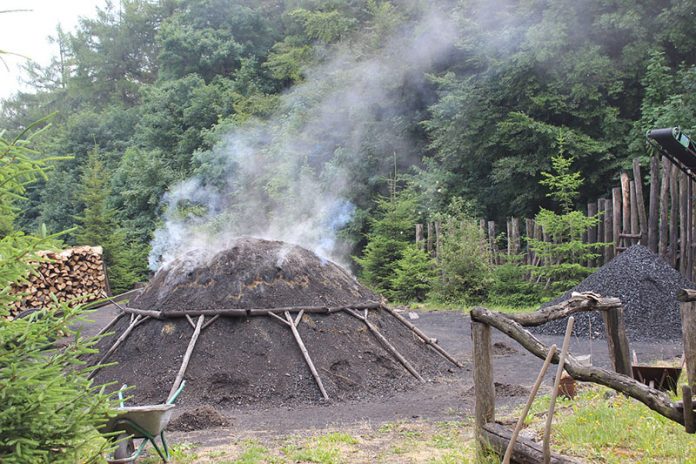Influence of Biochar on Crop Productivity in Organic Agriculture
We often wonder how can we increase our production and productivity leaving no traces of impact on human lives and nature, but do we really look into the probable solutions???
The same question heard from thousands of voices have echoed a lot and now we can say that we may have a credible measure to it. The “Biochar”. Then, what really is biochar? Biochar is charcoal made from biomass of plant origin and agricultural waste – hence the name “biochar.” It is a carbon (C)-rich, stable solid material that is generated from the pyrolysis or thermochemical decomposition of organic material in an oxygen-limited environment under controlled condition. Biochar can be distinguished from charcoal (which is used mainly as fuel) in that the primary application of biochar is used as a soil amendment, while charcoal is commonly produced as an energy carrier. And the use of biochar in organic farming has been quite prevalent nowadays.
The multiple effects of biochar are what we get a lure to it. It can be used as a product itself or as an ingredient within a blended product, with a range of applications such as an agent for soil improvement, improved resource use efficiency, remediation and/or protection against particular environmental pollution, and as an avenue for greenhouse gas (GHG) mitigation. The thing that really brings biochar up is its potential to increase conventional agricultural productivity and enhance the ability of farmers to participate in carbon markets beyond the traditional approach by directly applying carbon into the soil. Moreover, the potential of biochar to remove heavy metal and associated pollutants has a highlighted importance to organic farming systems since the contaminants from municipal and industrial organic wastes have always been a great concern that would need to be managed without the use of synthetic chemicals. In addition, a significant synergistic effect of biochar and organic fertilizer or compost helps to improve soil nutrient availability and organic C content, subsequently promoting crop nutrient uptake and yield in biochar-treated soils. The biochar-induced priming effect potentially provides an additive effect in promoting organic fertilizer use efficiency in organic farming systems.
Another agricultural benefit of biochar in agriculture that has been commonly explored is the influence of biochar on biological Nitrogen fixation, root nodulation, and legume crop growth which are uniquely important in organic farming systems. This effect has been widely proposed to be closely related to the greater boron (B) and molybdenum (Mo) availability by biochar additions. The applied biochar augment crop productivity in view of the enormous beneficial influence on varied soil physical and chemical properties. Incorporation of organic manures Biochar in Organic Farming along with inorganic fertilizers have even established a revealing the complementary effects with respect to improving the growth, yield, and yield attributes. This can be observed both in a controlled environment as well as in the field.
Most agricultural researchers have renewed interest to use charcoal/black carbon/biochar as a soil amendment for stabilizing soil organic matter. Converting the waste biomass into biochar transfers very significant amounts of carbon from the active to inactive carbon pool, presenting a compelling opportunity to intervene in the carbon cycle in the soil. Furthermore, the use of biochar as a soil amendment has been proposed as a new approach to mitigating human-induced climate change along with improving soil productivity.
About the Author:
Niruta Shrestha; B.Sc. Ag
Lamjung Campus
Institute of Agriculture and Animal Science
You may Like:
Organic Farming and Biodiversity Conservation: A Complementary Bond
